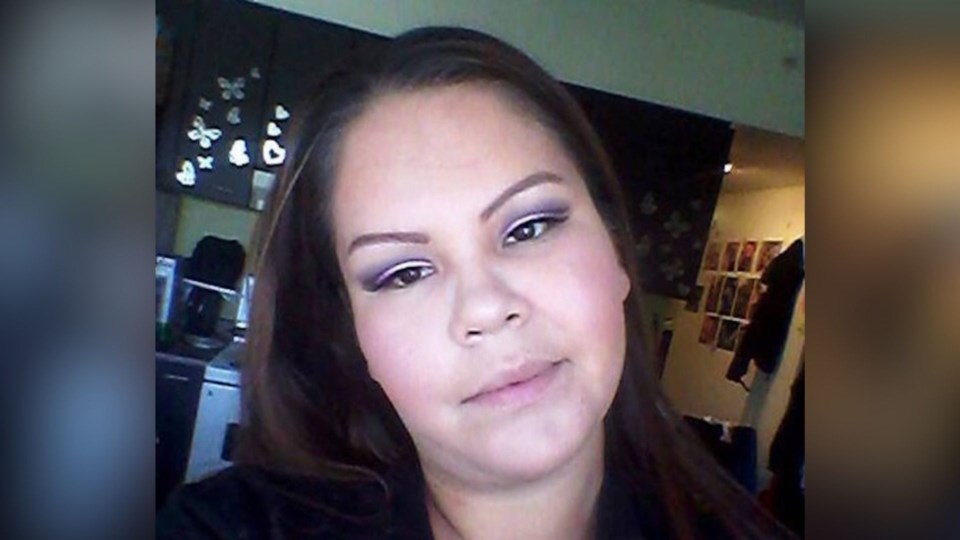A woman whose life has been marked with “unrestrained violence” has been sentenced to 60 days in jail after pleading guilty to being unlawfully in a house.
Sadie Suade Taniskishayinew pleaded to the lesser charge while facing charges of breaking and entering a dwelling with intent to commit an offence and uttering threats to burn, destroy or damage. The plea was to a lesser charge on the first charge and the threats charge was stayed.
Taniskishayinew, a member of Saskatchewan’s Yellow Quill First Nation, is no stranger to the courts. She appeared for the sentencing via video from prison where she is serving assault sentences.
The 60 days will be added to time already being served.
“It should not be concurrent,” said Vancouver Provincial Court Judge Nancy Adams.
The defence had suggested a conditional sentence order but Adams said attaching that to a sentence would create a “quagmire” for corrections officials to deal with.
In September 2022, Taniskishayinew was sentenced to four years prison for assaults that happened while she was on probation for a manslaughter conviction.
She was convicted in 2017 of the November 2015 manslaughter of Robert Boucher, 31, in Vancouver. The pair had been socializing in her apartment. When he left, she followed him.
A B.C. Supreme Court judge found Boucher was stabbed once with a butcher knife. He later died in hospital.
Police soon found the knife with Boucher’s blood on it in a garbage bin. It was similar to those in a knife collection in the accused’s kitchen.
The home invasion offence happened Feb. 12, 2022.
On Jan. 31, Adams said Taniskishayinew had been drinking at the victim’s Jackson Avenue, Vancouver house.
The next day, five people entered the woman’s home. She called 911 while hiding in a closet in a room with the door barricaded by a couch.
“She was scared. She did not want them in her home,” the judge said.
The court heard the reason for the invasion was presumably to steal alcohol.
Taniskishayinew’s voice was heard on the 911 call yelling, “She’s down here.”
The room was then broken into. One of the intruders was the victim’s own sister.
The victim was punched in the face and her cellphone smashed before she escaped.
Police soon arrived.
The sister has already pleaded guilty and given an 18-month conditional sentence order. A man’s case remains before the courts.
Adams said Taniskishayinew’s poor choice in social groups may have been part of the offence.
“Group mentality is a problem here,” Adams said. “When she’s in a group of people, she may commit an offence.”
Background and rehabilitation
Adams frequently cited the earlier assault decisions of Judge Kathryn Denhoff
In 2022, Denhoff said violence has long been a part of Taniskishayinew’s life.
She said Taniskishayinew was born to a 15-year-old who had been physically and sexually abused in a residential school.
“Her suffering from violence is so extensive that she has come to expect violence from others including romantic partners,” Denhoff said.
Denhoff said Taniskishayinew’s police record includes multiple attacks on people in public places.
That record of violence has also continued while in custody, the judge said, noting a record of assaults on inmates, abuse to staff and bullying other prisoners to get drugs.
Denhoff said Taniskishayinew has repeatedly expressed a desire to deal with substance abuse and anger issues but when the supports are put in place for her, she does not take advantage of them.
However, Adams said Taniskishayinew has begun to show improvements while in custody this time and expressed hope she could get on with her life and be reunited with her two surviving children.
Adams said Taniskishayinew has recognized she has an alcohol problem.
The court heard Taniskishayinew has significant Gladue factors, a reference to a Supreme Court of Canada case which said Indigenous background factors should be taken into account at sentencing.
Adams said Taniskishayinew has a “reduced moral culpability due to “significant Gladue factors.”
“She was exposed to poverty. She had early and consistent exposure to alcohol. She has also had early and consistent exposure to violence,” said Adams, noting Taniskishayinew’s lack of emotional regulation and “reactive and impulsive responses to perceived threats and insults” lead her into problems.
“It makes her risk of violence higher.”



